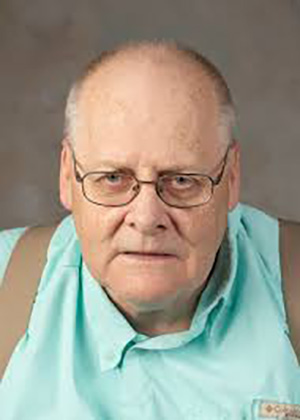By GREG MARKLEY
Colin Powell, son of Jamaican immigrants in Harlem, rose to the zeniths of American authority—military, diplomatic and moral. Admiration for him after his death Oct. 18 echoed his popularity in life. Sorrow on his death at age 84 crossed the political divide; a rarity.
Powell’s backing of the Iraq War was controversial. Yet most people did not hold him accountable for the seven-plus years’ conflict. As a general and diplomat, he was successful because of his great leadership skills as well as charisma.
In April 1989, Powell became Commander of Forces Command (FORSCOM), the largest U.S. Army Command, then based in Atlanta. A few months after assuming command, Powell was finishing off a tour of the units at Fort McPherson. He was set to talk to four historians and three military staff for 15 to 20 minutes—a quick greeting and overview and then out.
Several months later I visited the Office of Historians where from 1986-88 I helped supervise the only active Army historical detachment. An historian was still excited after Powell stayed there for 1 or 1 1/2 hours. I had heard of Powell’s showing genuine interest in all his
teams, and to spend extra time when visiting 6 or 7 people marked him as a people-person.
“Treat people kindly,” Powell often said. “When you are kind to somebody and I don’t mean necessarily buddy-buddy, just show kindness and consideration. Show that people are worthy and you respect them and you are glad they’re with you.” Unfortunately, I was not there when the general met the people inside!
Powell, Gen. Norman Schwarzkopf Jr. and President George H. W. Bush’s national security
team did a tremendous job in winning the 1991 Gulf War. Powell colorfully explained how the U.S. military would perform against the Iraqi Republican Guard. “Our strategy in going after this army is very simple,” he said. “First we are going to cut it off, and then we are going to kill it.”
That was accomplished in record time. Powell’s kindness also was shown. A soldier from Alabama who had been a Prisoner of War with the Iraquis was freed, as were all POWs. When I
met him he showed me a business card with Gen. Powell’s name and personal contact number.
“Powell said all ex-prisoners could call his office if we had a concern he could help with.” This was the Commander, Joint Chiefs reaching out to people way down the chain. Astonishing!
To see how far Colin Powell and this state and country have evolved, go down Highway 280 into Phenix City. You will notice the General Colin Powell Parkway. As a second lieutenant in 1958, stationed at Fort Benning in the Infantry branch, he was not immune to discrimination in housing, bars and restaurants. His street is a major thoroughfare, not a minor side street.
Alma Powell, a Birmingham native, was married to Colin for 59 years. After he retired from the Army and had a best-seller, “My American Journey,“ he was considered presidential timber.
She was asked in an oral history about that. “I don’t want to describe the hate mail we’ve gotten!”
In 1998, Colin Powell traveled to Birmingham to give a major speech on leadership (behind close doors) to businessmen. He consented to a 15 to 20 minute press opportunity which I attended hoping to learn about his new charity, America’s Promise. I suspected someone would ask Powell if he planned to run for president, but I underestimated the craziness of the TV reporters.
A reporter asked “What are the chances you will run for president?”; the second asked,
“Who would be your campaign manager if you ran?”; a third said, “Which party are you running in?” (A longtime Republican, Powell was said to be an interest of the Democrats, too.) At this point, Powell said, “How many ways can I say no?” This went on for about 17 of the 20 minutes.
I sat in the second row and occasionally raised my hand. I was going to actually ask a question about why Powell was there — to promote his charity. Of course he was going to be asked about Campaign 2000, when there would be an “open” seat as Clinton was term-limited.
The press is unruly more than not. Still, I thought of those poor kids who could gain from America’s Promise.
Colin Powell never ran for president. That’s too bad. His heart just wasn’t in it. He had done enough for the country. During the toxic 2008 campaign, he asked: “Is there something wrong with being a Muslim in this country? The answer is no, that’s not America. Is there something wrong with some 7-year-old Muslim American kid believing that he or she could be president?” Of course not.
Powell was a trailblazer in many fields. He will be missed, for sure.
Greg Markley first moved to Lee County in 1996. He has Masters’ in education and history. He taught politics as an adjunct in Georgia and Alabama. An award-winning writer in the Army and civilian life, he has contributed to the Observer for 12 years. gm.markley@charter.net.

